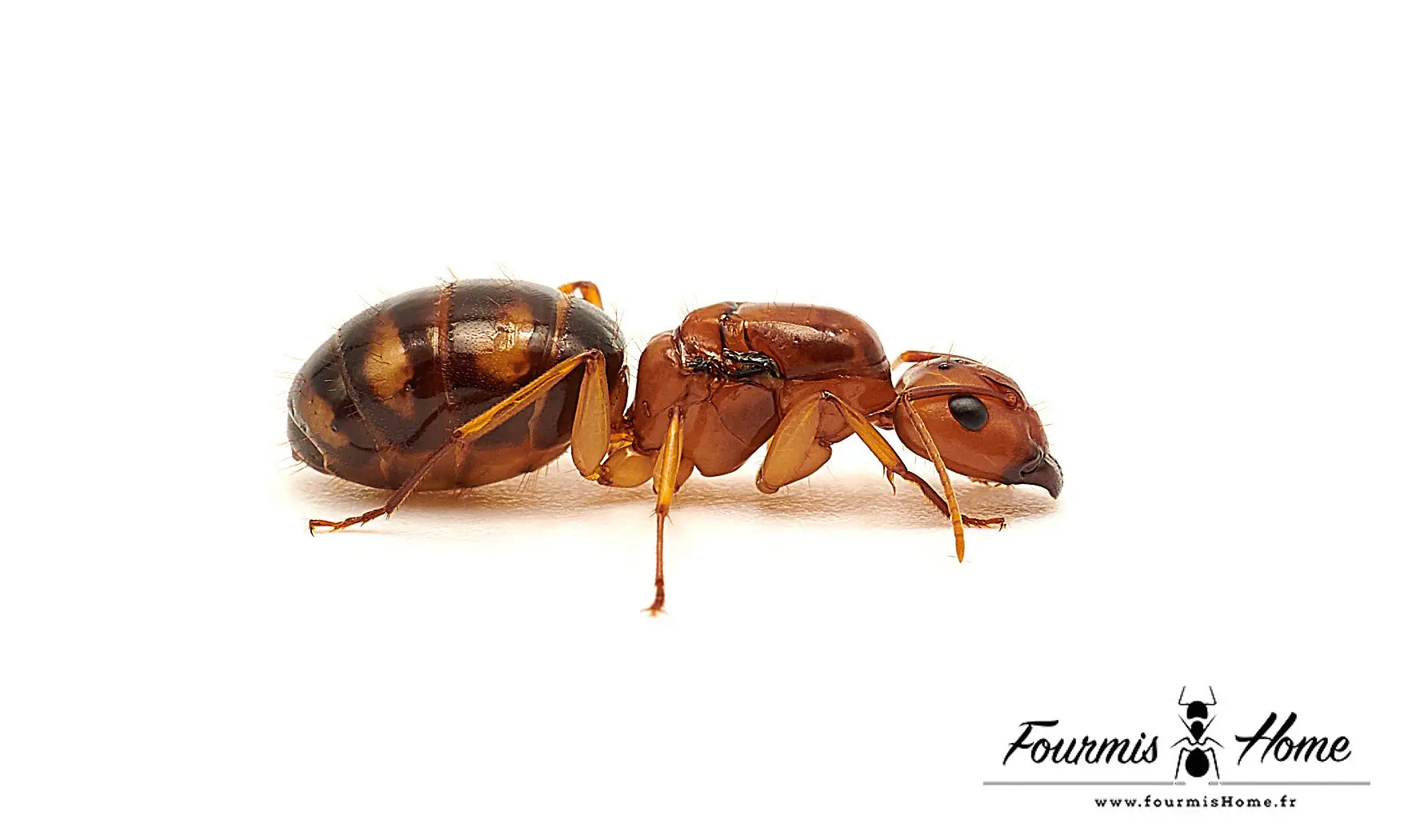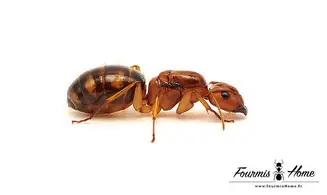

Camponotus maculatus subnudus
Reference : CFOUR-046
119.90€
Available
Latin name: Camponotus maculatus subnudus
Taxonomy: Subfamily: Formicinae, Tribe: Camponotini
Breeding level: Beginner, just provide a good temperature
Geographical distribution: Africa, Greece, Southwest Asia.
Habitat: Prefers steppe and dry forest.
Colony form: Monogynous
Queen: Size: 14 - 15mm Color: Head dark brown to black, Thorax yellowish, Gastre dark brown to black with yellow spots or stripes depending on the variety.
Workers: Size: 6 - 8mm Color: Head dark brown to black, Thorax yellowish, Gastre dark brown to black with yellow spots or stripes depending on the variety
Major: Size 11 - 13mm Color: Head dark brown to black, Thorax yellowish, Gastre dark brown to black with yellow spots or stripes depending on the variety
Male: Size: 11mm Color: Reddish yellow
Food: Honeydew and insects: such as flies, mealworms, mosquitoes and small locusts; also fruit
Humidity: Hunting area: 30 - 50% Nest: 50 - 60%
Temperature: Hunting area: 18 - 30°C Nest: 24-28°C
Hibernation: No, but a winter break from November to March at room temperature is recommended
Type of nest: All types of nests will suit them, tube foundation and then dry nest with a drinker in the hunting area.
Description: Camponotus maculatus subnudus are among the largest and most beautiful ants in Africa. They are very aggressive and defensive. but only attacks when disturbing the nest with very powerful mandibles. This species of maculatus has brighter colors and is slightly smaller.
Development: Swarming from March to July depending on the country of origin
Foundation: Occurs in a cloistered manner (without feeding) Development: 45 days from egg to worker (depending on temperature)
Size of the colony: 10,000 individuals, the queen can reach the age of 20 years.
Taxonomy: Subfamily: Formicinae, Tribe: Camponotini
Breeding level: Beginner, just provide a good temperature
Geographical distribution: Africa, Greece, Southwest Asia.
Habitat: Prefers steppe and dry forest.
Colony form: Monogynous
Queen: Size: 14 - 15mm Color: Head dark brown to black, Thorax yellowish, Gastre dark brown to black with yellow spots or stripes depending on the variety.
Workers: Size: 6 - 8mm Color: Head dark brown to black, Thorax yellowish, Gastre dark brown to black with yellow spots or stripes depending on the variety
Major: Size 11 - 13mm Color: Head dark brown to black, Thorax yellowish, Gastre dark brown to black with yellow spots or stripes depending on the variety
Male: Size: 11mm Color: Reddish yellow
Food: Honeydew and insects: such as flies, mealworms, mosquitoes and small locusts; also fruit
Humidity: Hunting area: 30 - 50% Nest: 50 - 60%
Temperature: Hunting area: 18 - 30°C Nest: 24-28°C
Hibernation: No, but a winter break from November to March at room temperature is recommended
Type of nest: All types of nests will suit them, tube foundation and then dry nest with a drinker in the hunting area.
Description: Camponotus maculatus subnudus are among the largest and most beautiful ants in Africa. They are very aggressive and defensive. but only attacks when disturbing the nest with very powerful mandibles. This species of maculatus has brighter colors and is slightly smaller.
Development: Swarming from March to July depending on the country of origin
Foundation: Occurs in a cloistered manner (without feeding) Development: 45 days from egg to worker (depending on temperature)
Size of the colony: 10,000 individuals, the queen can reach the age of 20 years.

